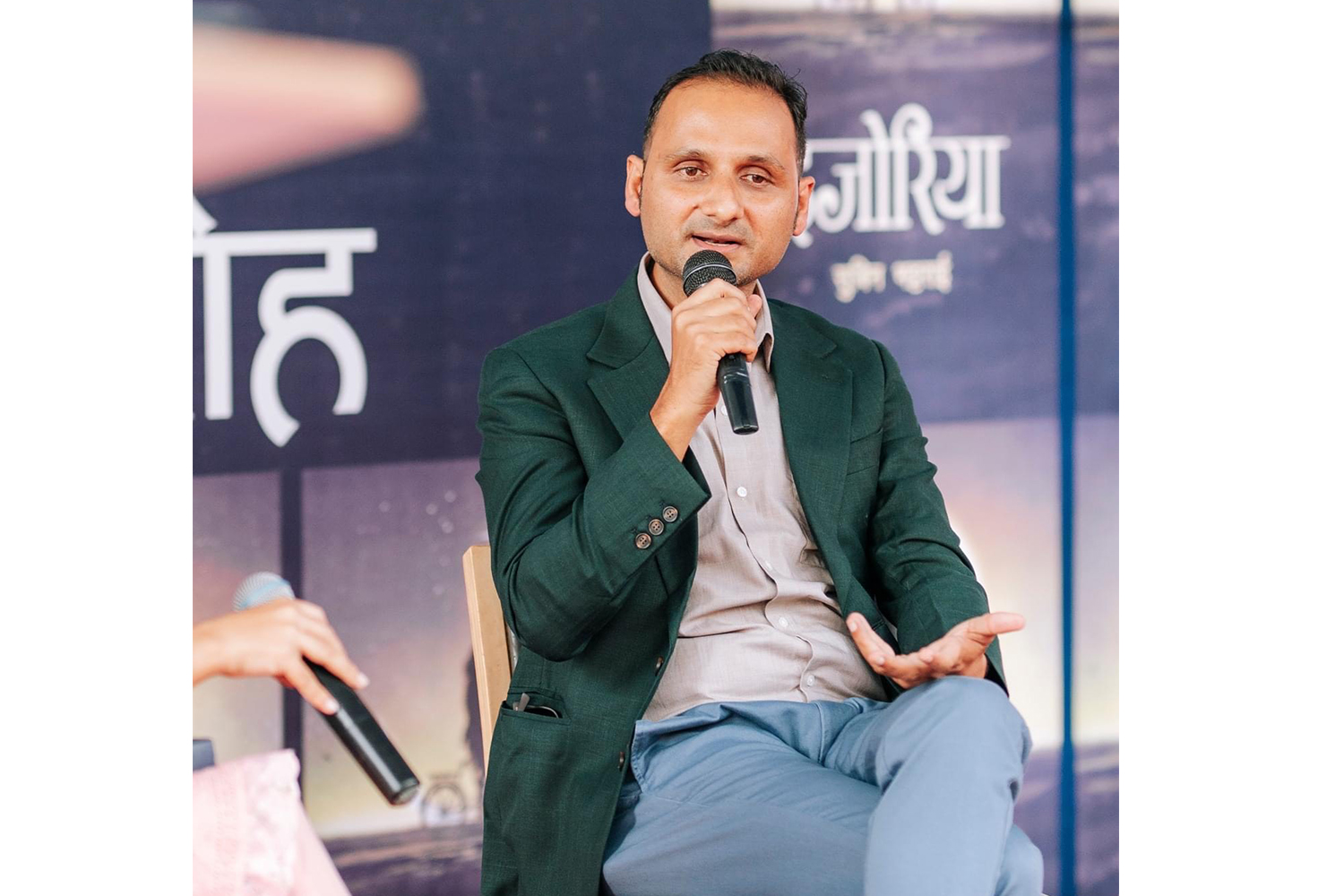Culture & Lifestyle
Crafting stories that resonate with youths
Writer Subin Bhattarai discusses his writing journey and how he is always keen on creating stories that captivate the youth.
Anish Ghimire
In 2011, writer Subin Bhattarai, fresh out of his master’s in environmental science, decided to pursue his passion for storytelling by publishing a collection of stories titled ‘Kathaki Patra’. Unable to secure a job, he took the plunge and launched his debut book at a small gathering in a café in Kathmandu.
“I gathered the stories I had written since high school and decided to compile them into a book,” he explains. To achieve this, he taught himself how to type in Nepali and meticulously typed out each story on his computer. Despite his hardwork, the book failed to capture a wide readership. “While there were a few comments from the critics, my book didn’t gain traction, and I suffered a huge financial loss,” he recalls.
He dedicated the next year to studying the market and tried to find out the kind of stories youths were interested in reading. He found inspiration close to home. “I decided to write about my surroundings. My environment in college and what I saw on a regular basis,” he says. And so he locked himself away from the world for three months and prepared ‘Summer Love’.
The acclaimed 2012 novel is a story of two characters in love, Saaya and Atit. “I fell in love with Saaya,” Bhattarai tells me with a spark in his eyes. “As I began writing about her, I couldn’t get her off my mind. The character felt so real that readers often asked me for photos of her. But she is a product of mind.”
The novel published by FinePrint became popular overnight and gave Bhattarai a place in the Nepali literary scene. But something most of his readers don’t know is that long before ‘Summer Love’, Bhattarai had already earned his name as a child actor.
Hailing from Khotang, he moved to Kathmandu early in his childhood. Poetry fascinated him. Ever since he was in the first grade, he remembers writing. By the time he was in the third grade, his poetries were selected to be recited in a literature program at Radio Nepal. “Every Friday there used to be a literature programme focusing on children in Radio Nepal and I often sent out my poems. When they got selected, I went to the studio to recite them,” he says.
Slowly he moved to TV. In 1995, when Bhattarai was in the eighth grade he acted in a TV serial called, ‘Twakka Tukka’ which aired on Nepal Television. The character he played was likeable and he remembers being recognised by people while walking on the streets. “But academic responsibilities took over and I had to leave that profession altogether. If I had kept going, who knows how different my path would have been today.”
Bhattarai regularly played different characters in radio dramas that aired on Radio Nepal. He was inspired by the characters he played, scripts he read and the stories he heard. His fascination with stories doubled when he began reading BP Koirala.
“There are very few writers like Koirala,” says Bhattarai, adding that few writers have consistently put out good books like Koirala. To this day, he fantasises about meeting Koirala, talking to him for hours or travelling with him.
And when he finds himself in writer’s block, he sits back with a Koirala classic and something comes alive inside of him. “His books always bring out the writer in me,” he says.

After SLC (now SEE) he had to study science due to familial pressure. “When I expressed my interest in studying arts at home, it was immediately rejected as being a non-practical choice of career,” he says. So he went about studying science but not taking his eyes off literature. He regularly wrote poems and often recited them to his friends.
His literary career began with the launch of ‘Kathaki Patra’ but it took off after ‘Summer Love’. Especially the youths gravitated towards the book. A year and a half later, Bhattarai wrote the sequel named ‘Saaya’. This 2014 book has the point of view of three characters—a storytelling tactic inspired by Koirala’s ‘Babu, Ama ra Chhora’.
“When we launched this book, it was like a concert. So many people attended (the launch) that I felt overwhelmed and looking back, that is one of happiest days of my career so far,” he recalls with a smile.
After another romance novel named ‘Monsoon’ which came out in 2016, Bhattarai realised his work might have become too repetitive. So, he took a “risk” and launched ‘Priya Sufi’. This 2018 book focuses onsisterhood and mental health. More than the romance, this book focuses on familial ties, addressing suicide and beating long-term illness. “To my relief, the audience gladly accepted the book even though the story was a bit different than what readers expected of me,” he says.
In 2022, he launched his sixth book ‘Ijoriya’ and this novel’s story is based in the Maithili community. Before presenting this book to the market, Bhattarai researched quite a bit about the community. He is keen on giving people a fresh story or a relatable story. Looking ahead, he hopes to expand his literary expertise and work on other forms of literature as well, such as poetry and film script writing.
“Writers need to be recognised more,” he says. Bhattarai doesn’t subscribe to the popular notion of writers wanting to stay in one corner, not wanting to be recognised. “Writers need to come forward and be more expressive in their writings because we are people with a voice,” he says.




 9.7°C Kathmandu
9.7°C Kathmandu

.jpg&w=200&height=120)













